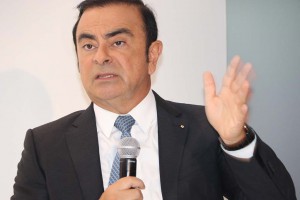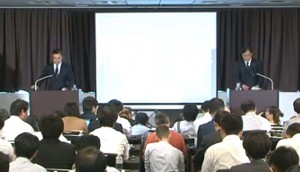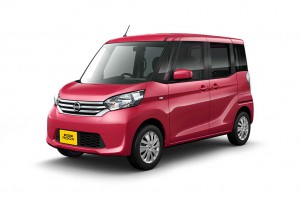Already serving as the CEO of both French automaker Renault, as well as its Japanese alliance partner Nissan, Carlos Ghosn will now become chairman of embattled automaker Mitsubishi.
It will put the Brazilian-born executive in a familiar role. He became chief operating officer at Nissan in 1999, following a $6 billion investment by Renault, and helped turned the then-struggling Japanese company around. Following a series of scandals, Mitsubishi now needs similar help.
And it could also help boost give a big boost to the Renault-Nissan Alliance, adding just enough volume for the Franco-Japanese partnership to brush aside rival Toyota to become the world’s best-selling auto company.
Mitsubishi has faced a series of scandals and setbacks in recent years, including a series of financial issues that forced it to seek a bailout from Japanese banks in order to stave off bankruptcy. The most recent crisis was triggered by revelations that the automaker had rigged mileage tests for the Japanese market. That forced it to offer payments to owners even as its sales and stock price crashed.
Nissan, which has had a long relationship with Mitsubishi, stepped in agreeing in May to buy a controlling, 34% stake in the smaller maker for $2.3 billion.
With the deal now locked in place, Ghosn told reporters that, “We will not spare anything to support Mitsubishi.” But while he insisted “it’s possible” to turn that company around, he also acknowledged, “It is going to be difficult. It will require tough decisions.”
(Nissan wants to redefine mobility. Click Here to see how.)
The scandal was actually triggered, in a sense, by Nissan. The carmaker raised questions about mileage claims for several models produced for it by Mitsubishi. The smaller company then conceded it had been rigging mileage tests for as much as 25 years – though officials have continued to insist that the data was manipulated only for vehicles sold in the home Japanese market.
“Mitsubishi’s revival is my top priority,” said Osamu Masuko,” who has been serving, until now as both chairman and CEO of Mitsubishi. He will yield the chairman’s title to Ghosn but retain in place as CEO – unlike a number of other executives who were ousted following the mileage test revelatins.
Ghosn had to talk the CEO into staying, in fact, telling reporters that, “We trust Masuko-san and we have been working with him for many years.”
For his part, the Renault-Nissan Alliance chief insisted he has “not intention to interfere with the management of Mitsubishi,” the two companies retaining their separate identities. But several Nissan executives, including its chief performance officer Trevor Mann, will be assigned to the smaller company. Mann will become Mitsubishi’s new chief operating officer.
Turning things around won’t be easy. On Wednesday, Mitsubishi updated it original forecast for the fiscal year ending next March 31, nearly doubling its anticipated loss from 145 billion yen to 240 billion, or $2.3 billion.
Along with the original models tarnished by the mileage scandal, the Japanese government ordered the halt of sales for eight more Mitsubishi models in August, a list including the popular Pajero SUV.
Nonetheless, Ghson said “We’re going to demonstrate, hopefully together, that this is a good decision.”
(Click Here for details about Renault-Nissan’s new deal with Microsoft.)
For those simply counting sales numbers, it could prove to deliver a big boost for the Renault-Nissan Alliance. Last year, the partnership – which includes several other brands, including Romanian Dacia and Russian Lada – came in fourth worldwide, behind Toyota, Volkswagen and General Motors. Adding in Mitsubishi could push Renault-Nissan sales over the 10 million mark, and past its rivals.
“We may become number one, even thought that is not our objective,” Ghosn said during a news conference at the Paris Motor Show.
(Could Renault-Nissan-Mitsubishi top Toyota for the global sales title? To find out, Click Here.)




If someone can (help) turn around Mitsu is Ghosn.